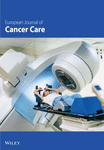Editorial
Inevitably, in this year preceding a new Millennium there is every kind of prediction for life beyond the year 2000. Cancer is no exception.
Since the identification of genetic abnormalities that increase the susceptibility to some cancers, there has been rapid development in genetic counselling and much discussion about these findings changing the face of cancers. However, most scientists do not expect that more than a few percentage of the total number of cancers to be accounted for by inherited susceptibility, despite the fact that the current list is expected to grow. To what extent screening for these cancers and the subsequent preventative measures proposed, if at all, will be acceptable or possible, is still unclear. The fact that cigarette smoking has been a known cause of many cancers for some time has influenced some to stop the habit of never to begin in the first instance. Nevertheless. for some groups – those from lower socio-economic groups and others socially deprived – the number of cigarette smokers has increased, as has the consumption of alcohol in the levels that matter as a contributory cause of cancer. It has been proposed that there could be a 30% reduction in cancer across the board as a result of dietary changes ( Doll and Peto 1985). The problems of changing this are at least as much to do with economics and politics as they are to do with the will of the individual. Clearly the relationship between diet and cancer are complex and the current EPIC study should in time provide some extremely valuable data on European citizens to provide more specific health messages in the future.
The World Health Organization cancer programme predicts 20 million new cancer patients will be diagnose each year globally in the new millennium and 10 million will die of cancer. The public finds it difficult to accept that despite ever-increasing technology and scientific advances there are still far to many deaths from cancer and far too much morbidity both from the disease itself and from the effects of treatment. Members of the public now search the world wide web for information about their cancer but the deaths from it do not appear to diminish. The question why not? remains on many lips. Perhaps it is partly the problem of appropriate expertise being used by everyone in the field. This is not just an issue for cancer but for many diseases. The research is available and the evidence base for treatment clear and yet it is still not widely used. Clinical governance and continuing medical education may help improve this but it all of our responsibility as well to encourage those patients with cancer to seek treatment from the centres which are enlightened and to increase the education and remind of the accountability for those which are not.
On the issue of morbidity, just take the one example of breast cancer, the treatment for which may cause an early menopause, fatigue, sometimes pain, and sometimes lymphodoema. These few symptoms alone can alter the quality, for example, a young woman’s life, her role, her ambitions and aspirations. Add to this the statistic that a significant minority of women with early stage breast cancer (35%) develop moderate to severe anxiety and/or depression as a result of both the diagnosis and the treatment of breast cancer. The care and support required for this group alone must be addressed as part of the package of care for every woman with breast cancer. Similar issues need addressing for other groups, particularly the most common cancers which affect such large numbers of people. There is absolutely no point that I can see in saving a life that then becomes so intolerable that it cannot be in any way enjoyed. That is a dreadful legacy to leave for anyone.




